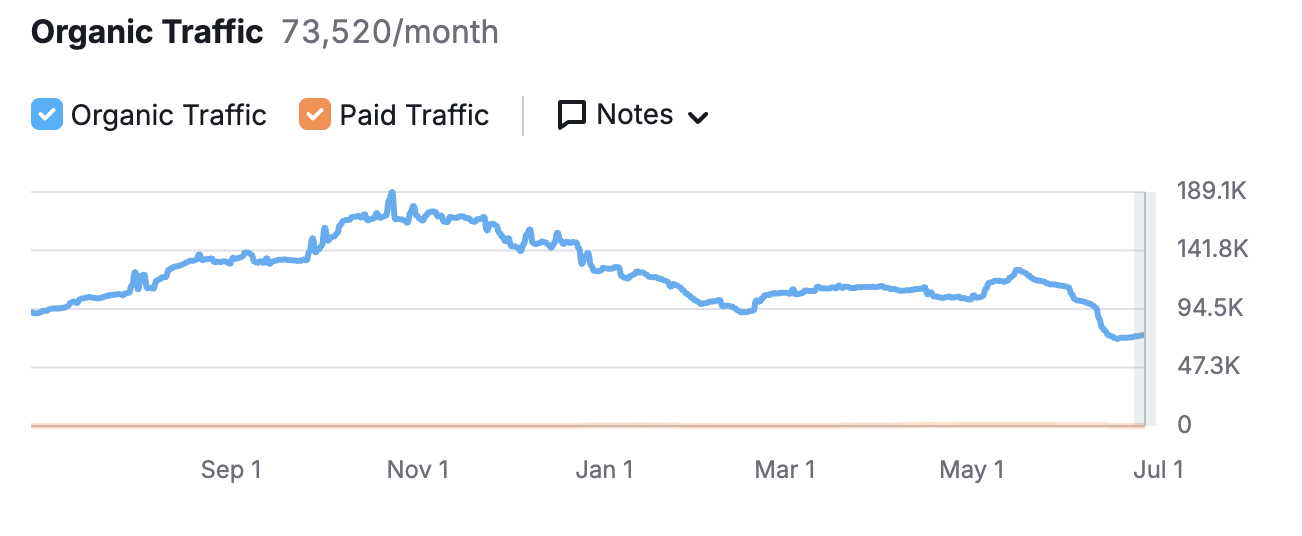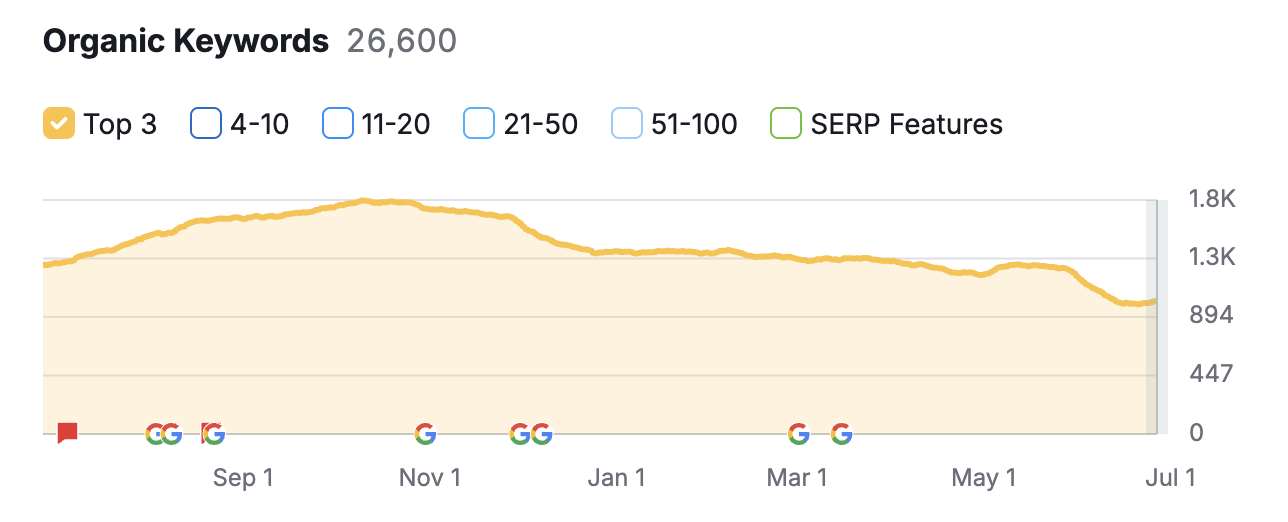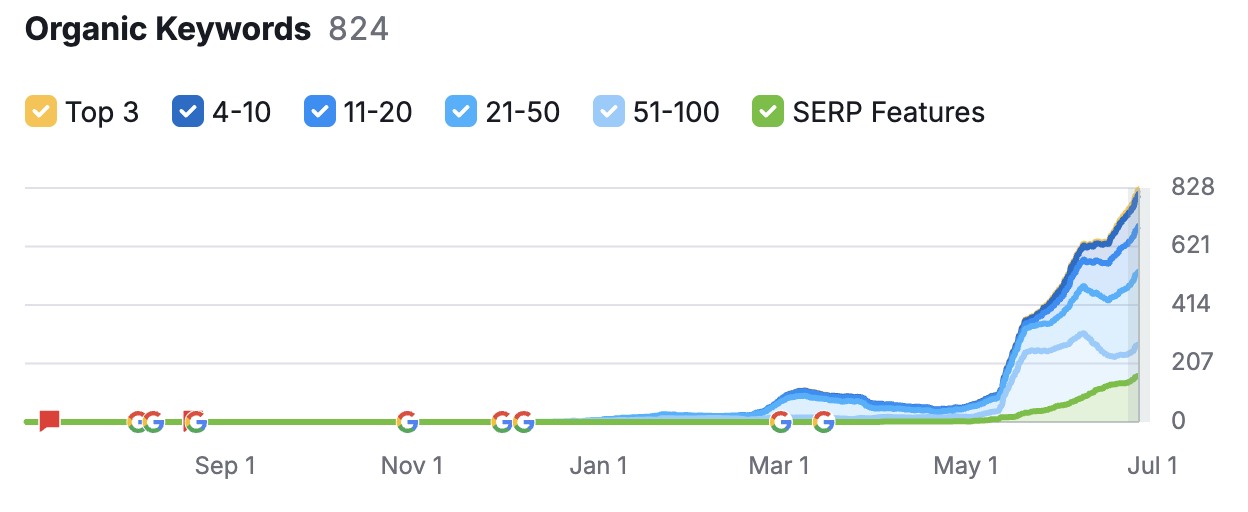The Future of Search Marketing: Why Owning Your Niche Beats Domain Authority

Start your career as color grading editor
Id sit donec fermentum quis facilisis sagittis velit pulvinar sollicitudinat dolor aliquam risus ultricies cras tortor est lacus vitae scelerisque ac aliquam rutrum mattis mauris commodo invitaeleo odio amet mi pulvinar in sagittis quis auctor vestibulum quisque tristique sagittis non ullamcorper donec.
- Neque sodales ut etiam sit amet nisl purus non tellus orci ac auctor
- Adipiscing elit ut aliquam purus sit amet viverra suspendisse potenti
- Mauris commodo quis imperdiet massa tincidunt nunc pulvinar
- Adipiscing elit ut aliquam purus sit amet viverra suspendisse potenti
Choosing the right color software
Vitae congue eu consequat ac felis placerat vestibulum lectus mauris ultrices cursus sit amet dictum sit amet justo donec enim diam porttitor lacus luctus accumsan tortor posuere praesent tristique magna sit amet purus gravida quis blandit turpis dolor sit amet consectur.

At risus viverra adipiscing at in tellus integer feugiat nisl pretium fusce id velit ut tortor sagittis orci a scelerisque purus semper eget at lectus urna duis convallis. porta nibh venenatis cras sed felis eget neque laoreet suspendisse interdum consectetur libero id faucibus nisl donec pretium vulputate sapien nec sagittis aliquam nunc lobortis mattis aliquam faucibus purus in.
Choosing the best computer monitor
At risus viverra adipiscing at in tellus integer feugiat nisl pretium fusce id velit ut tortor sagittis orci a scelerisque purus semper eget at lectus urna duis convallis. Porta nibh venenatis cras sed felis eget neque laoreet suspendisse interdum consectetur libero id faucibus nisl donec pretium vulputate sapien nec sagittis aliquam nunc lobortis mattis aliquam faucibus purus in.
- Neque sodales ut etiam sit amet nisl purus non tellus orci ac
- Adipiscing elit ut aliquam purus sit amet viverra suspendisse
- Mauris commodo quis imperdiet massa tincidunt nunc pulvinar
- Adipiscing elit ut aliquam purus sit amet viverra suspendisse
Creating your viewing environment
Nisi quis eleifend quam adipiscing vitae aliquet bibendum enim facilisis gravida neque. Velit euismod in pellentesque massa placerat volutpat lacus laoreet non curabitur gravida odio aenean sed adipiscing diam donec adipiscing tristique risus. amet est placerat in egestas erat imperdiet sed euismod nisi.
Varius duis at consectetur lorem donec massa sapien faucibus etivamus arcu felis bibendum ut tristique et egestas quis ccumsan sit amet nulla facilisi morbi orci a scelerisque purus
Conclusion
Eget lorem dolor sed viverra ipsum nunc aliquet bibendum felis donec et odio pellentesque diam volutpat commodo sed egestas aliquam sem fringilla ut morbi tincidunt augue interdum velit euismod eu tincidunt tortor aliquam nulla facilisi aenean sed adipiscing diam donec
59%. That’s the estimated drop in organic traffic Bayzat, a well-known HR platform in Dubai, has seen over the last six months. But it's not because people stopped searching for HR solutions. It’s because Bayzat tried to be everything to everyone, publishing content on topics like inventory management and event planning. The future of search marketing no longer rewards this approach.
In this blog, I explore how Google’s latest updates are rewarding specificity over scale, share a firsthand look at what’s working now, and why defining your niche might just be your biggest growth lever.
The SEO Game Has Changed
If your website traffic is down, you're not alone. Since Google’s December 2024 core update, even high-traffic domains have seen steep drops in visibility. The common scapegoat? AI-generated summaries stealing clicks. But dig into the data, and another story emerges.
While AI gets most of the blame, the real shift is happening around content relevance.
Google has started rewarding content that deeply aligns with the core expertise of a business. Gone are the days when large sites could muscle their way into rankings for loosely related topics based on domain authority alone. Today, what matters is whether your content is the best answer to a very specific question.
And if you're not the best-qualified expert on that topic? You're getting pushed down.
Bayzat: A Case Study in Keyword Overreach
Let’s return to Bayzat. According to SEMrush data, their organic traffic has dropped 59% since December. The number of keywords they rank in the top 3 for has fallen by 40%.

Why?
Bayzat is a HR platform. Yet their blog includes content on inventory software and event management firms, topics that are miles away from their core value proposition. It’s the classic “traffic for traffic’s sake” play. It may have worked a year ago, but not now.
Google’s new spam rules target “site-reputation abuse” while its topic-authority system elevates true experts.
If AI Summaries were the only reason for traffic drops, keyword rankings would remain stable. But they’re not. What we’re seeing instead is a reshuffling of which sites earn visibility in the first place. This suggests the real shift isn’t in how users behave, but in how Google, and increasingly, other AI-driven platforms, decide what content deserves to be surfaced.

Whether it's Google’s search results or AI-powered summaries in Perplexity or ChatGPT, the common thread is clear: platforms are prioritising depth, credibility, and relevance. Content that comes from genuine subject matter experts, and that clearly aligns with user intent, is rising to the top. Everything else is quietly being pushed aside.
Owning Your Niche: What Works Now
Compare the Bayzat trend to what Pieo achieved with Peninsula, a business setup consultant in Saudi Arabia.
When Pieo began working on their SEO in March 2024, the strategy was simple: own the niche. Every piece of content was built around Saudi business setup: licensing, regulations, timelines, cost breakdowns, case studies. No fluff, no keyword stuffing, and definitely no chasing irrelevant traffic.
The results?
- 15x increase in ranked keywords
- 7x increase in organic traffic
- 129% increase in qualified leads
All in under five months.

Peninsula didn’t try to rank for "best CRMs" or "tax software in the GCC". They stuck to what they knew, Saudi business setup, and answered the real, high-intent questions their audience was actually searching for. Despite having a modest domain authority of just 10, compared to Bayzat’s 42, Peninsula’s traffic is trending sharply upward while Bayzat’s continues to decline.
Why? Because Google no longer prioritises size over substance. It rewards content that aligns tightly with user intent and demonstrates clear topical authority. While Bayzat spread itself thin chasing high-volume, low-relevance topics, Peninsula doubled down on what it does best, and took traffic that would traditionally have gone to larger players.
The playing field is shifting. Relevance is levelling it.
Why Specificity Wins in 2025
High traffic looks great on a monthly report, but if it doesn’t bring in qualified leads or contribute to revenue, what’s the point? The future of search is about meaningful visibility. Reaching the right people with the right message.
Google’s algorithm is better than ever at detecting surface-level content strategies. It’s rewarding brands that demonstrate:
- Clear domain expertise
- Structured, helpful content around a tightly defined subject area
- Consistency across site structure and messaging
In today’s search landscape, platforms like Google and ChatGPT are starting to evaluate content more like your ideal customer would, looking for depth, clarity, and true expertise. Broad, generic keyword content is losing ground to content that demonstrates real subject matter authority. When users ask complex, high-intent questions, these platforms prioritise answers from specialists, not generalists.
So, What Should You Do Differently?
If you’re wondering how to make this shift work for your business, here’s a practical playbook:
1. Define your expertise, and stick to it. Get aligned on what your business solves, who you solve it for, and what questions those people are typing into Google.
2. Audit your content. If you’ve been chasing keyword volume instead of relevance, it’s time to clean house. Remove or repurpose content that doesn’t serve your core audience.
3. Build topic clusters. Rather than a scattergun of one-off blogs, structure content around your expertise: pillar pages, detailed subtopics, FAQ pages. Own the conversation.
4. Measure what matters. Stop reporting on traffic alone. Track qualified leads, conversion rate from organic search, and topic-specific engagement.
5. Think long-term. This isn’t a growth hack. It’s a strategy shift. One that builds brand equity, drives compounding results, and sets your business apart from the noise.
Relevance is the New Authority
There’s a reason the SEO "experts" shouting loudest about traffic drops also have the broadest blogs. They weren’t building trust, they were chasing clicks, hoping high-volume content would mask low relevance. That era is over. Google’s December update didn’t kill SEO, it just forced a rethink.
Don’t buy into the “SEO is dead” narrative. It’s not dying, it’s evolving. Just like we’ve seen on platforms like TikTok and Instagram, where niche creators consistently outperform generalists, search is undergoing the same transformation. On social, the algorithm rewards creators who serve a clearly defined audience with consistent, relevant content. The same principle is now reshaping Google’s algorithm.
Search is no longer about casting the widest net, it’s about delivering the most value to a specific user, in a specific moment. Businesses that lean into their strengths and show up with deep, topic-specific insight are being rewarded across the board, from discoverability on Google to inclusion in AI tools to organic visibility on social.
In many ways, SEO is just catching up to what’s already working elsewhere: authenticity, clarity, and expertise. For businesses that know who they serve and aren’t afraid to double down on that niche, this evolution isn’t a threat, it’s an opportunity.
The Future Belongs to Specialists
Define your edge. Stick to what you’re brilliant at. Answer the questions your ideal customer is actually asking, not just what shows up on keyword tools. When you focus on relevance over reach, your content becomes primed for discovery across the platforms shaping how people find answers today.
This approach doesn’t just help you climb Google’s rankings. It also improves your visibility across AI-powered tools like ChatGPT and Gemini, which increasingly serve as the first stop for users looking for expert guidance. These models pull from high-authority, highly relevant sources to shape their responses. If your content clearly demonstrates expertise and topical depth, it’s more likely to be referenced, cited, or summarised within these environments.
In short, owning your niche doesn’t just earn you rankings, it earns you presence across the full spectrum of modern discovery.
.avif)



